The warm smell of coffee and sound of spoken poems filled the Suffolk University Poetry Center as English professor and director of the Classics Minor George Kalogeris read selections from his new book “Dialogos” and his upcoming release “Guide to Greece.”
Professor Fred Marchant, co-director of the Poetry Center along with Professor Jennifer Barber, welcomed a full room of Suffolk University students and members of the community to the first poetry reading of the semester. Marchant explained that the reading would be followed by a live ‘dialogos’ between Kalogeris and Stamatia Dova, a professor of classics and modern Greek studies at Hellenic College in Brookline, Mass., to explore the meaning of Kalogeris’s works in relation to Greek history.
Suffolk’s Scholar-in-Residence poet David Ferry introduced Kalogeris by reading an excerpt from the introduction to “Dialogos,” describing the work of translating another poet’s voice from a foreign language to English.
“You can never be that other voice,” Ferry read, “What we hear in a good translation is not purely that voice but also the voice of the translator.”
Kalogeris said “Dialogos” is comprised of “twelve pairings [of writing] to put poems in dialogue with each other.” The poems within the book come mostly from ancient Greek writers but also from modern-era Russian and Serbian poets. All the writings share the theme of struggle—whether it be the struggle to let go of the past or the struggle to merely survive.
In a poem titled “Anniversario,” the narrator laments each passing birthday he has, striving to go back to a time where “birthdays were something to celebrate.” As the writing turns from a slightly humorous tone of accepting aging to a tragic tone of loss, the narrator asks, “why can’t I devour my hunger for the past?”
Another poem, written by a prisoner in a work camp in Serbia during WWII, explores the struggle to persevere through horrific times in captivity. “Call it a lifelong inching across the page in the dark,” the speaker says of his and his fellow prisoners struggle.
Selections from Kalogeris’s upcoming book, “Guide to Greece” (named after the Greek intellectual Pausanias’s major work) explore his family and personal life through the lens of Greek myth and classics. As a Greek-American, Kalogeris explained that all his poems are about his experience with this identity.
In his poem, “Odysseus Seeing Laertes,” Kalogeris reinterprets the famous scene of Homer’s epic “The Illiad.” Dova explains that the pivotal moment in Homer’s poem depicts Odysseus finally coming home to Ithaca and meeting his grieving father in his orchard for the first time in 20 years. In Kalogeris’s poem, his own father comes home at the end of a day to admire and groom a tree in their front yard.
“The tree in [George’s] poem is an excuse for joy,” Dova said, while the tree in Homer’s work evokes feelings of tragedy and grief.
“Guide to Greece” is “George coming home through Pausanias,” Dova said. His original poems, read in context with Greek classics, tell the story of modern myth and identity.


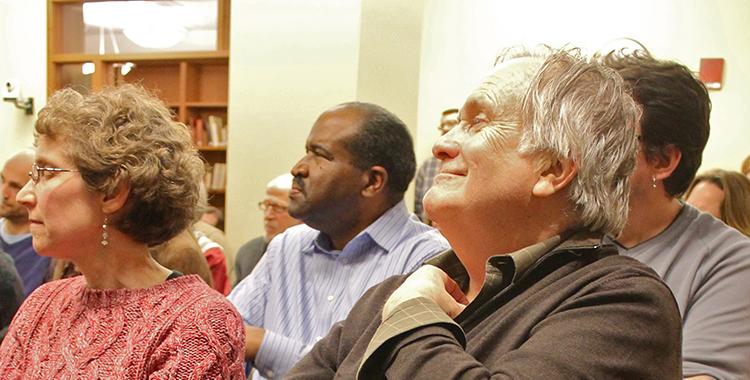


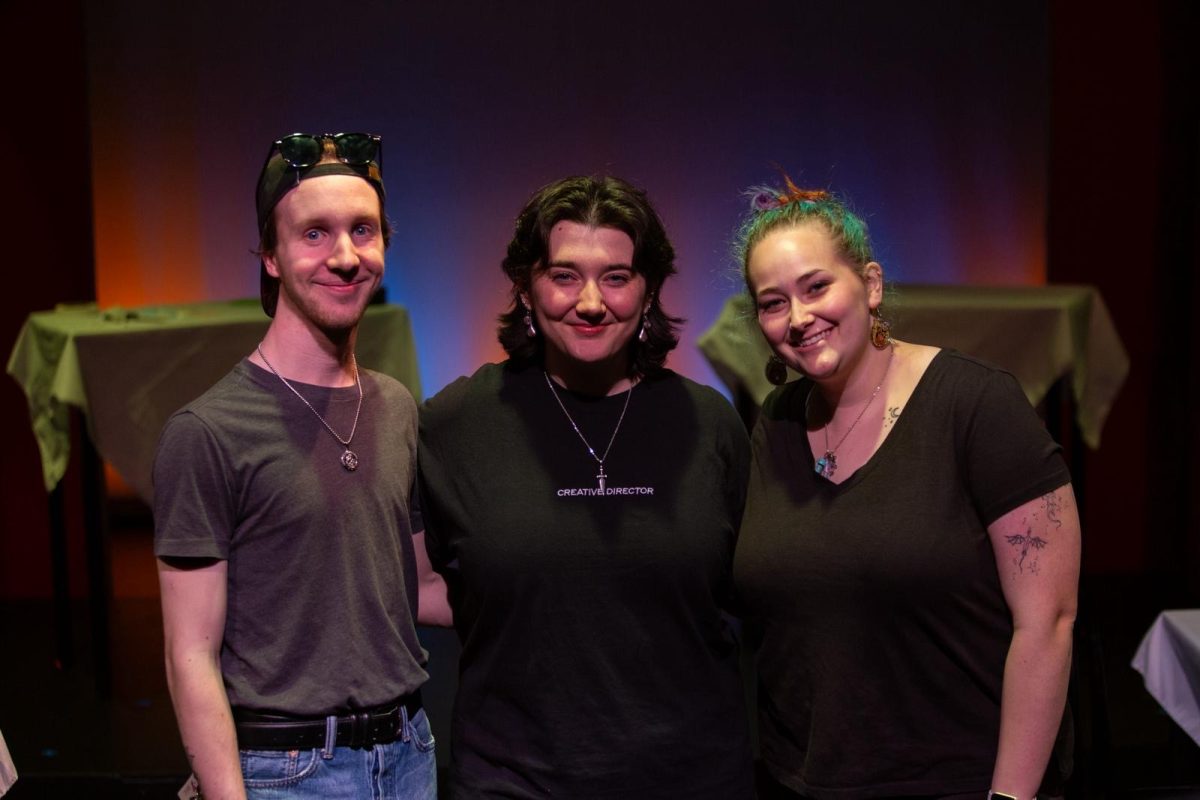

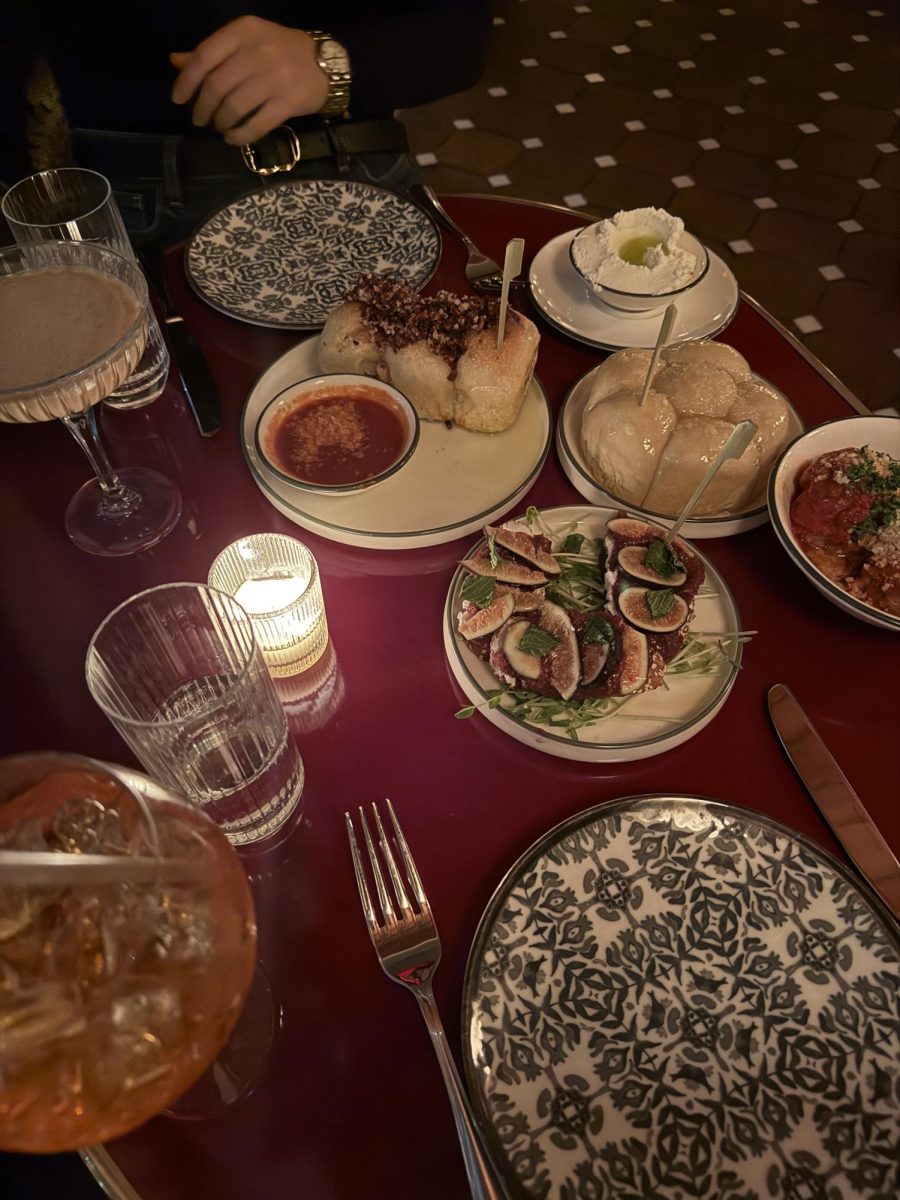




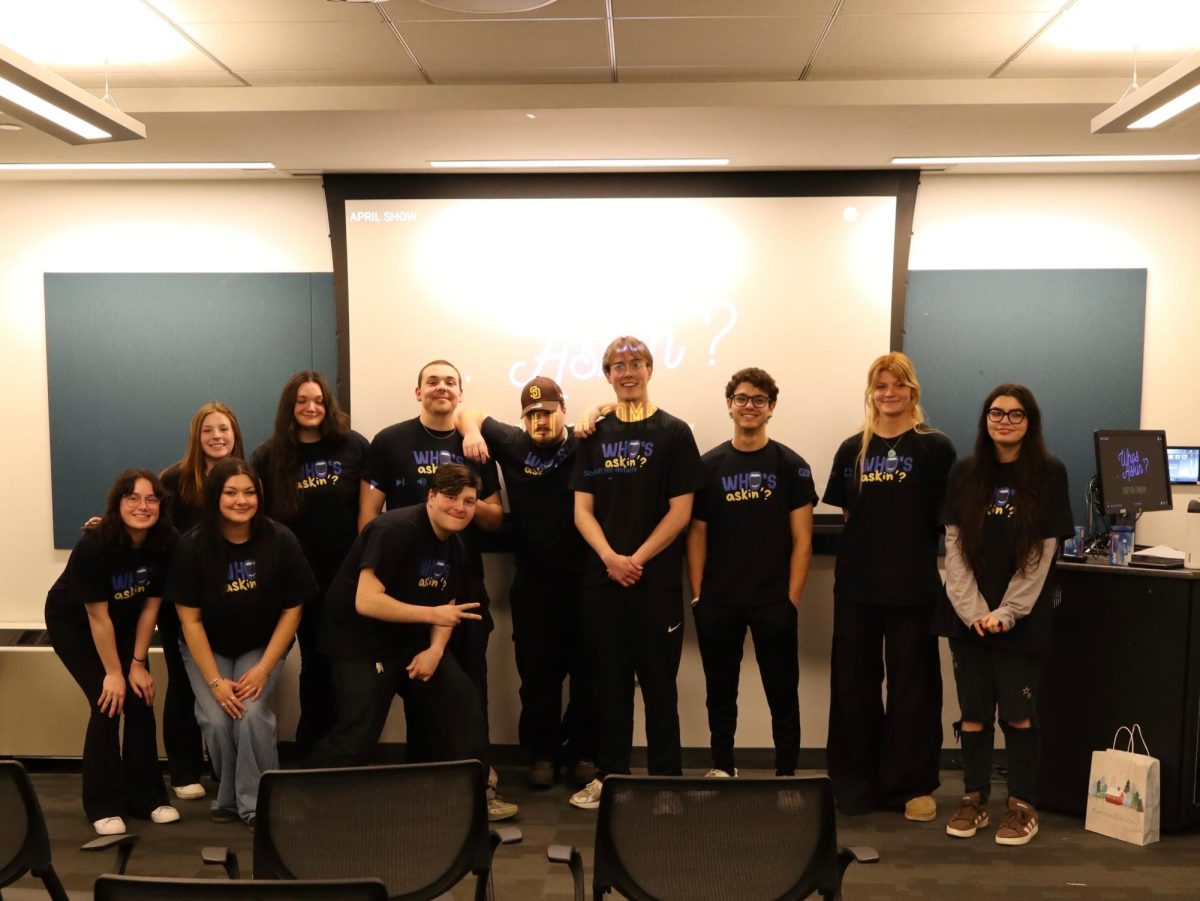
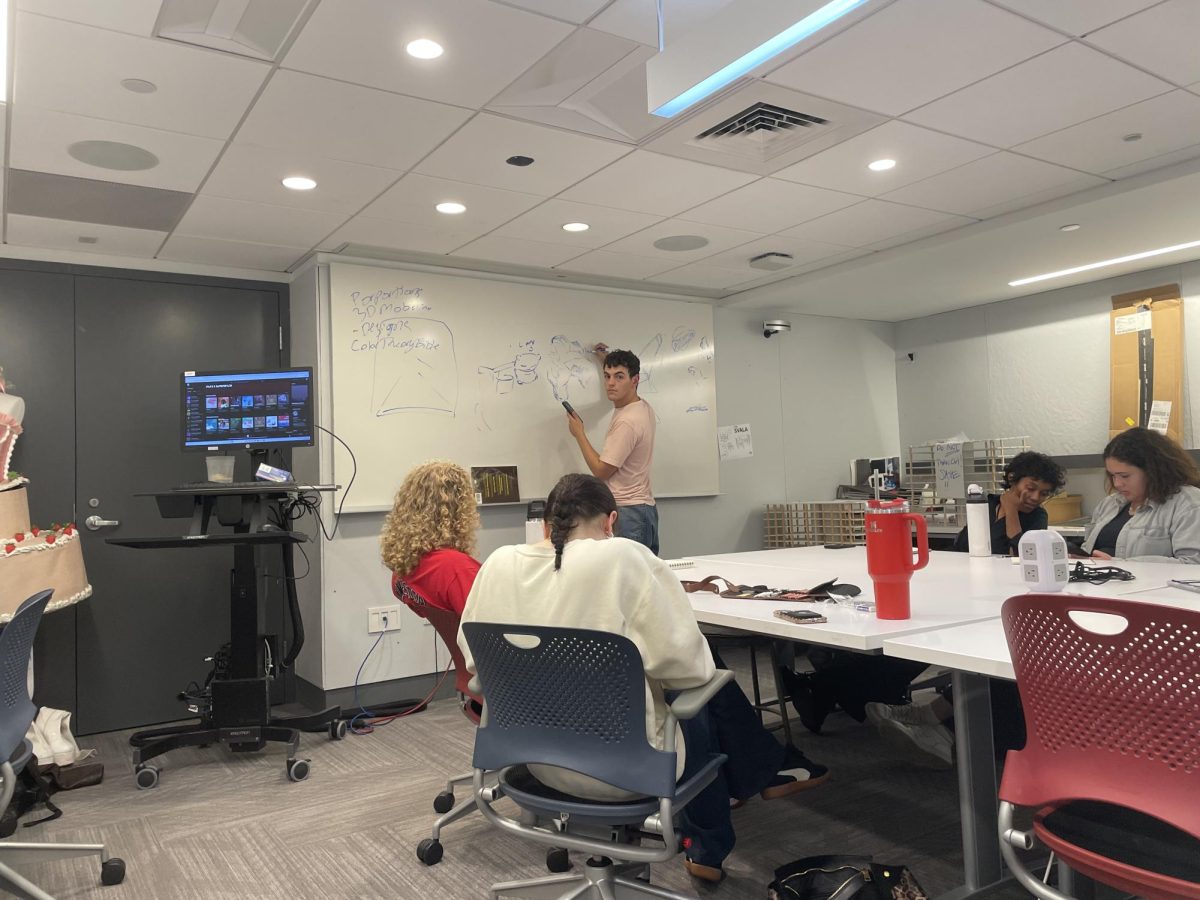
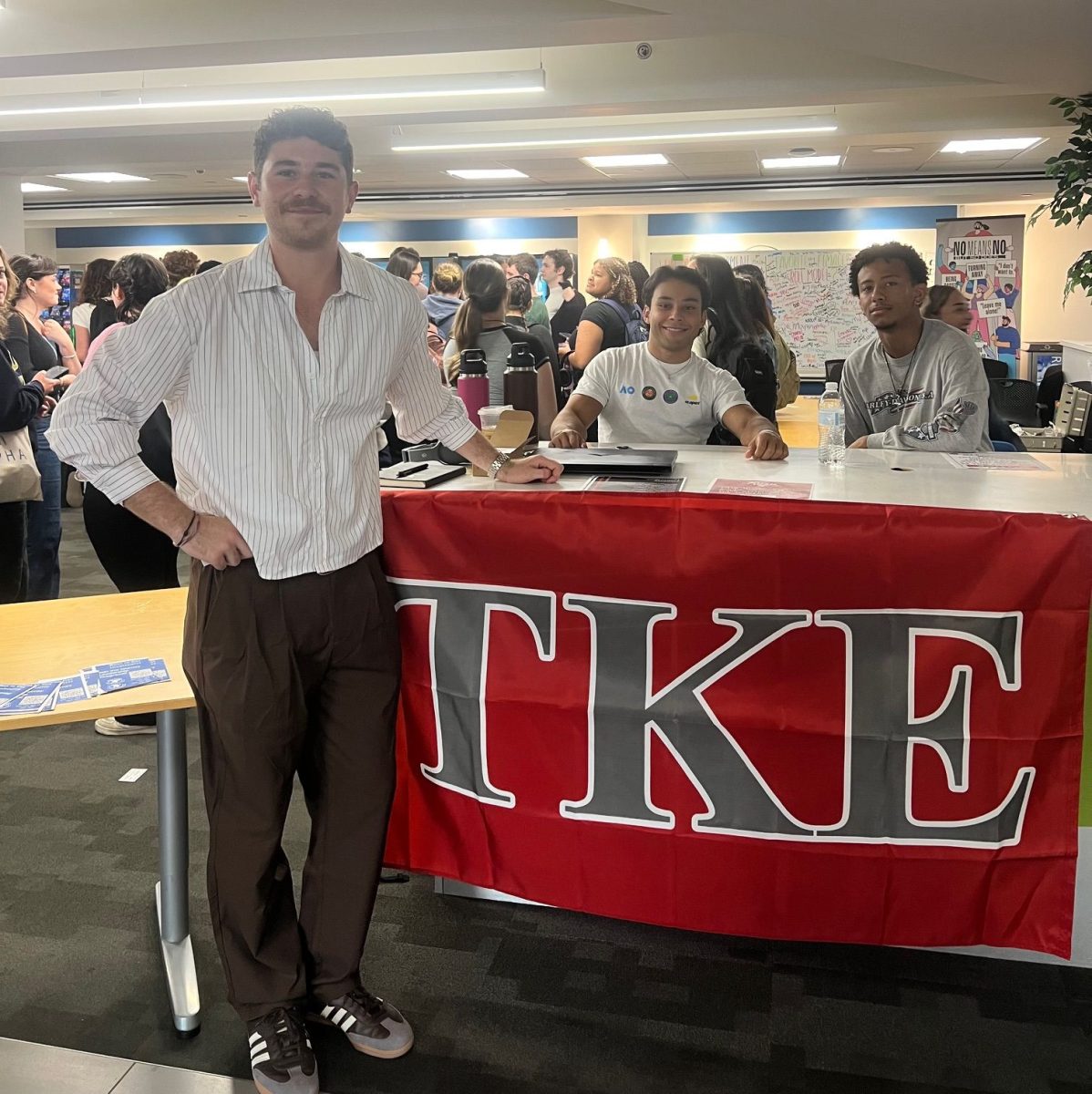






Ally Thibault • Jan 31, 2013 at 2:50 pm
#icymi @Suffolk_U’s Poetry Center hosted a reading of Greek history inspired poems-read about it in the @SuffolkJournal http://t.co/otkDZW35